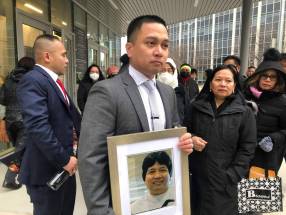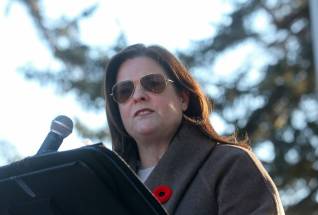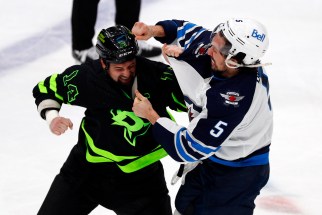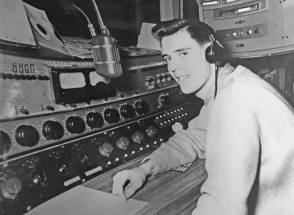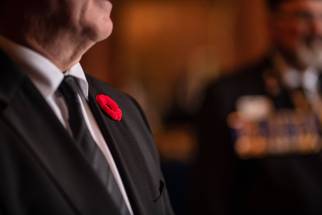The Fab First Deno Corrie played the Beatles on CKY 60 years ago, six months before anyone else in North America
Read this article for free:
or
Already have an account? Log in here »
To continue reading, please subscribe:
Monthly Digital Subscription
$0 for the first 4 weeks*
- Enjoy unlimited reading on winnipegfreepress.com
- Read the E-Edition, our digital replica newspaper
- Access News Break, our award-winning app
- Play interactive puzzles
*No charge for 4 weeks then price increases to the regular rate of $19.00 plus GST every four weeks. Offer available to new and qualified returning subscribers only. Cancel any time.
Monthly Digital Subscription
$4.75/week*
- Enjoy unlimited reading on winnipegfreepress.com
- Read the E-Edition, our digital replica newspaper
- Access News Break, our award-winning app
- Play interactive puzzles
*Billed as $19 plus GST every four weeks. Cancel any time.
To continue reading, please subscribe:
Add Free Press access to your Brandon Sun subscription for only an additional
$1 for the first 4 weeks*
*Your next subscription payment will increase by $1.00 and you will be charged $16.99 plus GST for four weeks. After four weeks, your payment will increase to $23.99 plus GST every four weeks.
Read unlimited articles for free today:
or
Already have an account? Log in here »
Hey there, time traveller!
This article was published 09/11/2022 (1125 days ago), so information in it may no longer be current.
We loved them, yeah, yeah, yeah.
There was a period in the mid-1960s when Winnipeg was being referred to as Canada’s Liverpool, owing to a thriving music scene that came close to rivalling what was taking place across the pond, in the Merseyside city that spawned Gerry and the Pacemakers, the Searchers and Cilla Black. Oh, and four mop-topped lads collectively known as the Beatles.
Given that tag, it’s only fitting that 60 years ago this week, a Winnipeg radio announcer, Dennis (Deno) Corrie, became the first disc jockey in North America to spin a tune by the Fab Four, when he dropped the needle on Love Me Do, the group’s official debut single.
Short of carbon-dating a 45 RPM record, how can Corrie be so certain he was numero uno? That’s easy, he replies, when reached at home in Calgary, where he’s lived since 1965. He has been making that claim since November 1962, and nobody has tapped him on the shoulder to correct him, yet.
“Radio Luxembourg is credited with being the very first station in the world to play (Love Me Do) and I did so not long after that, a good six months before anybody else in North America,” he goes on. “So yeah, we beat everybody to the punch, all right, there’s no doubt in my mind.”
Corrie, 83, grew up in the West End. He has fond memories of listening to 680 CJOB’s Chuck Cook as a kid — “the funniest guy I ever heard” — and was convinced he wanted to be a radio announcer by age eight, when he fashioned a microphone out of a scrap piece of wood to pretend to be a newscaster.
He was 19 years old in 1958 when he caught on at CJOB as a control-room operator, and 21 when he landed a weekend announcer position at CKY, which, the year he started, was the most popular top-40 station in Western Canada. What he especially enjoyed about working at ’KY was that he was allowed to choose a majority of the songs he played rather than having to adhere to a strict list put together by a senior music director. (Because the shows were live — he and the other jocks played vinyl only — he always made sure he had a few three- or four-minute songs at his disposal, in case he suddenly had to run to the men’s room down the hall. “Then you’d pray the record didn’t skip, while you were gone,” he adds.)
In the summer of 1962, Corrie’s boss said he wanted to introduce a fresh segment during Corrie’s three-hour, Sunday morning broadcast. They’d call it Music from Around the World and it would be Corrie’s responsibility to come up with a dozen or so new, international songs, week in and week out.
That sounded great, Corrie said, only where would he get the records from? It wasn’t like stores downtown were carrying the likes of Italian singer Rita Pavone. “Don’t worry,” his boss assured him; the station had an arrangement in place with a hip record shop in Great Britain that sold sides theretofore only available in Europe.
Supplied Deno Corrie gives Radio Luxembourg credit for the world’s first radio broadcast of a Beatles song, but he was the first in North America.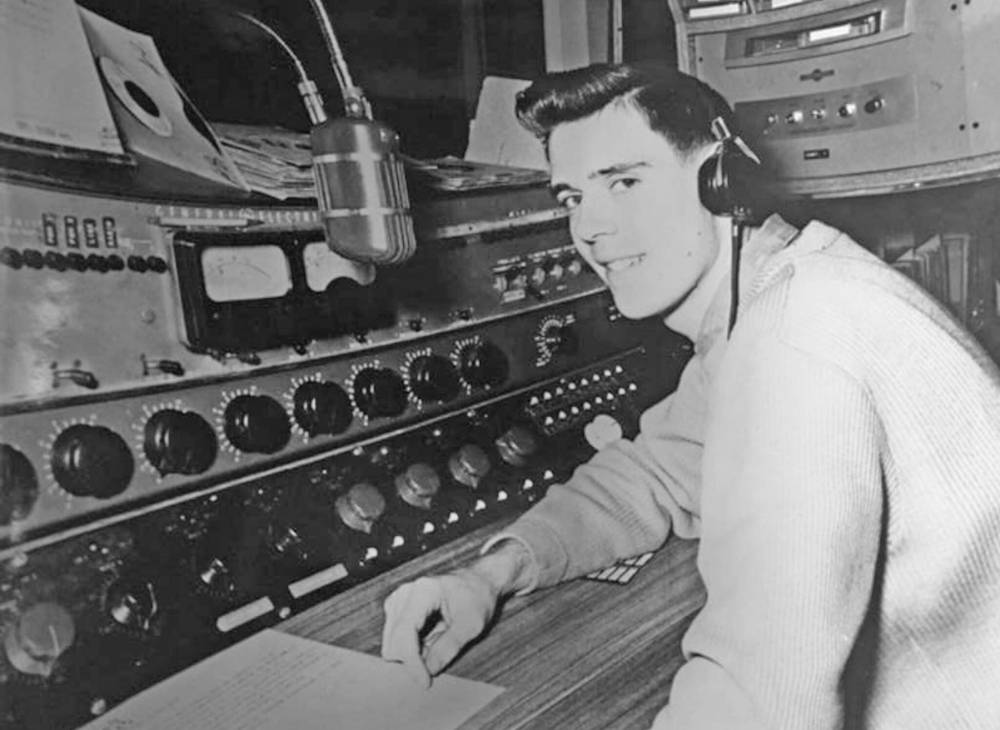
On Sept. 11, 1962, right around when Corrie would have been piecing together his first order, the Beatles, who replaced their drummer Pete Best with Ringo Starr the previous month, entered London’s EMI Studios with producer George Martin, to record four songs. One of them, Love Me Do, penned by John Lennon and Paul McCartney, was subsequently released as a single in the United Kingdom on Oct. 5, 1962.
A week later, Corrie was leafing through the latest issue of New Musical Express, a British publication that, in addition to highlighting the latest chart-toppers, also included news on interesting up-and-comers. A short blurb touching on the Beatles — how the four members had funny haircuts and caused teenage girls to scream at the top of their lungs, without even singing a note — caught his attention. He noticed the Liverpool-based group had a single on the bottom rungs of the Top 40 and made a mental note to order a copy of Love Me Do for his new show.
The single arrived in the mail the first week of November 1962, along with a dozen others. “OK, this is a group that’s apparently taking the U.K. by storm, they shake their heads a lot and they’re called the Beatles,” he spoke into his microphone, ahead of playing Love Me Do, the morning of Nov. 11, 1962.
Let us guess: the switchboard lit up and he was immediately inundated with calls from listeners anxious to know how to get a copy for themselves. Well, not so much.
“With the Beatles, it was kind of like, ‘That’s catchy, but what else have you got?’”–Dennis Corrie
“It’s not like that never happened, because it certainly did in the case of Roy Orbison’s Oh, Pretty Woman, when the lines went absolutely bonkers, the first time I played it,” Corrie says. “With the Beatles, it was kind of like, ‘That’s catchy, but what else have you got?’”
Of course, that all changed soon enough. By the time the group’s second single, Please Please Me, was released in the U.K. in January 1963, Corrie had added a five-minute segment titled “Beatles Talk” to the proceedings, when he would let his audience know what the lads were up to, that week. Then, when he began playing From Me to You, the band’s third release, in April of that year, he was suddenly fielding calls from other Canadian stations demanding to know “where the hell” he was getting his records from.
Love Me Do was the Beatles’ debut single.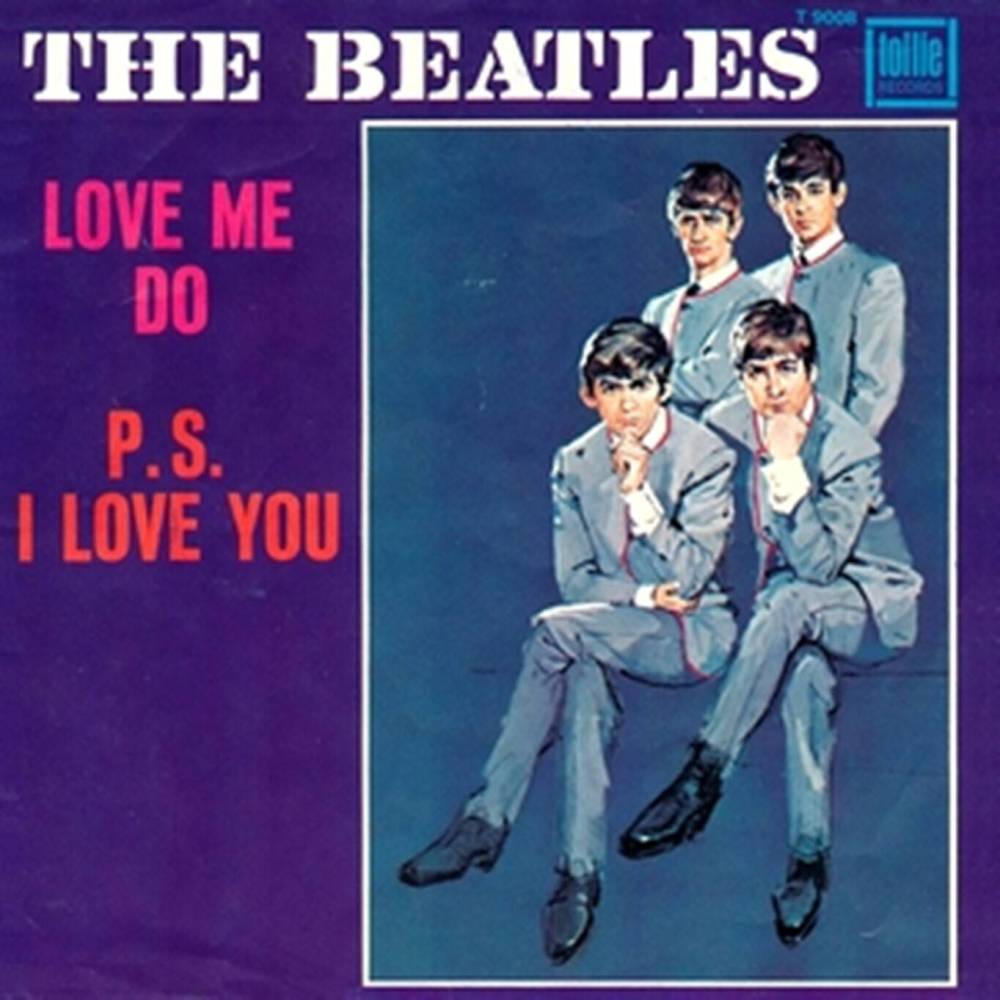
“Anyways, She Loves You came out that summer (1963) and by then, we weren’t the only ones playing the Beatles any longer,” he continues. “Mind you, it wasn’t until December (1963), when I Want to Hold Your Hand was released in the States, that the Americans started getting into them, too. I remember hearing from a friend of mine down south, who wanted to know if those were the same Beatles I’d already been playing for 12 months.’”
Corrie laughs when asked if he ever received a bonus in his pay envelope, for breaking the band in this part of the world. No, he says, though his bosses definitely let him know he had “good ears” — the ultimate compliment a young disc jockey could hear. (True that: besides the Beatles, Corrie, who was “stolen away” by a Calgary station in the spring of ’65, was arguably the first DJ in North America to also tap into tunes by the Rolling Stones, Herman’s Hermits, Freddie and the Dreamers and the Dave Clark Five.)
“I’m not going to lie to you, and say I knew from Day 1 that the Beatles were going to become the greatest rock band of all time, which they are undoubtedly are,” he says, citing Yesterday, originally from the album Help!, as his fave Beatles tune. “But if you have a copy of Love Me Do sitting around, throw it on and, like I did just the other day, you’ll probably go, ‘That is a damn good record.’ There was nothing like the Beatles then, and there’s been nothing like them, ever since.”
david.sanderson@freepress.mb.ca
Dave Sanderson was born in Regina but please, don’t hold that against him.
Our newsroom depends on a growing audience of readers to power our journalism. If you are not a paid reader, please consider becoming a subscriber.
Our newsroom depends on its audience of readers to power our journalism. Thank you for your support.


